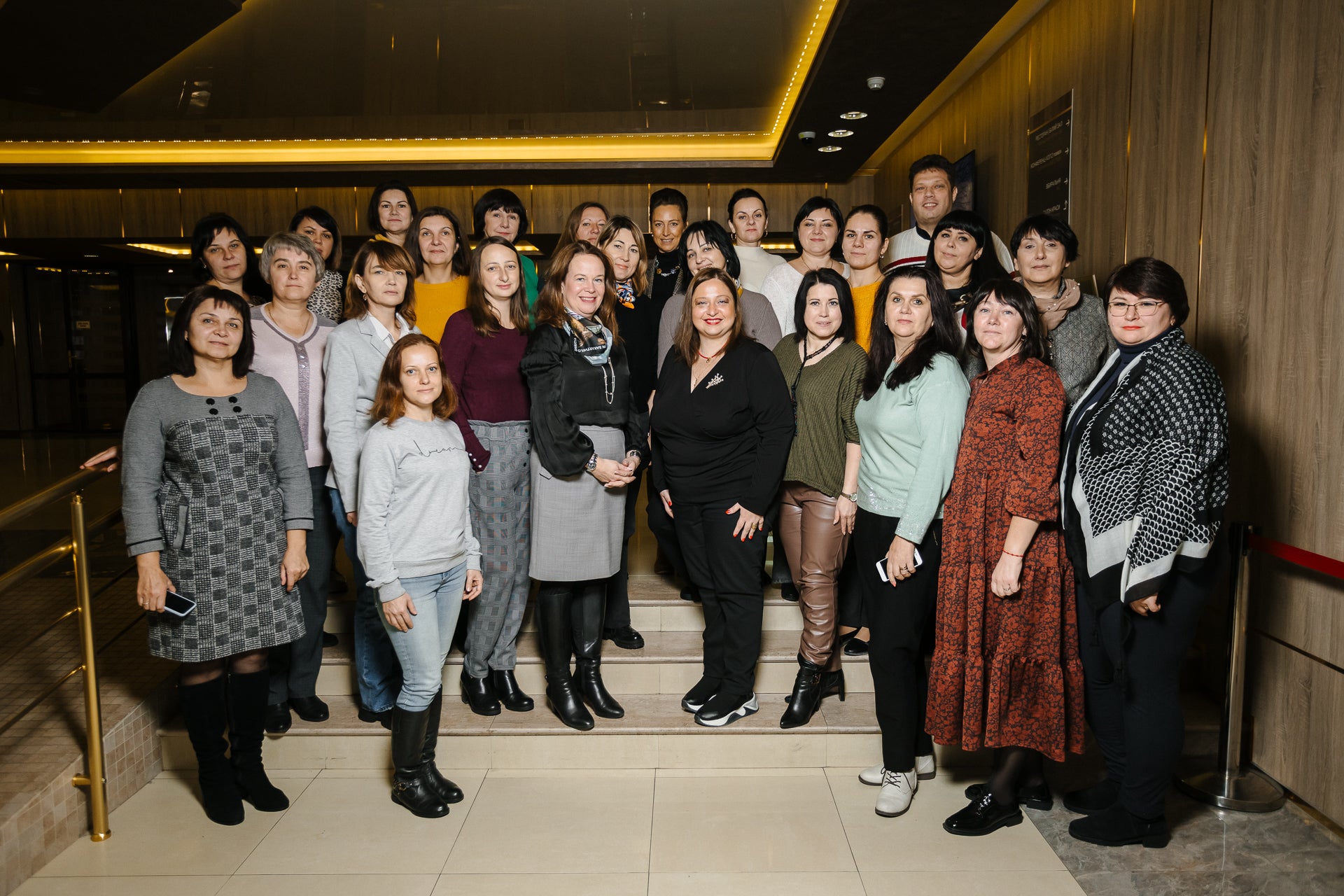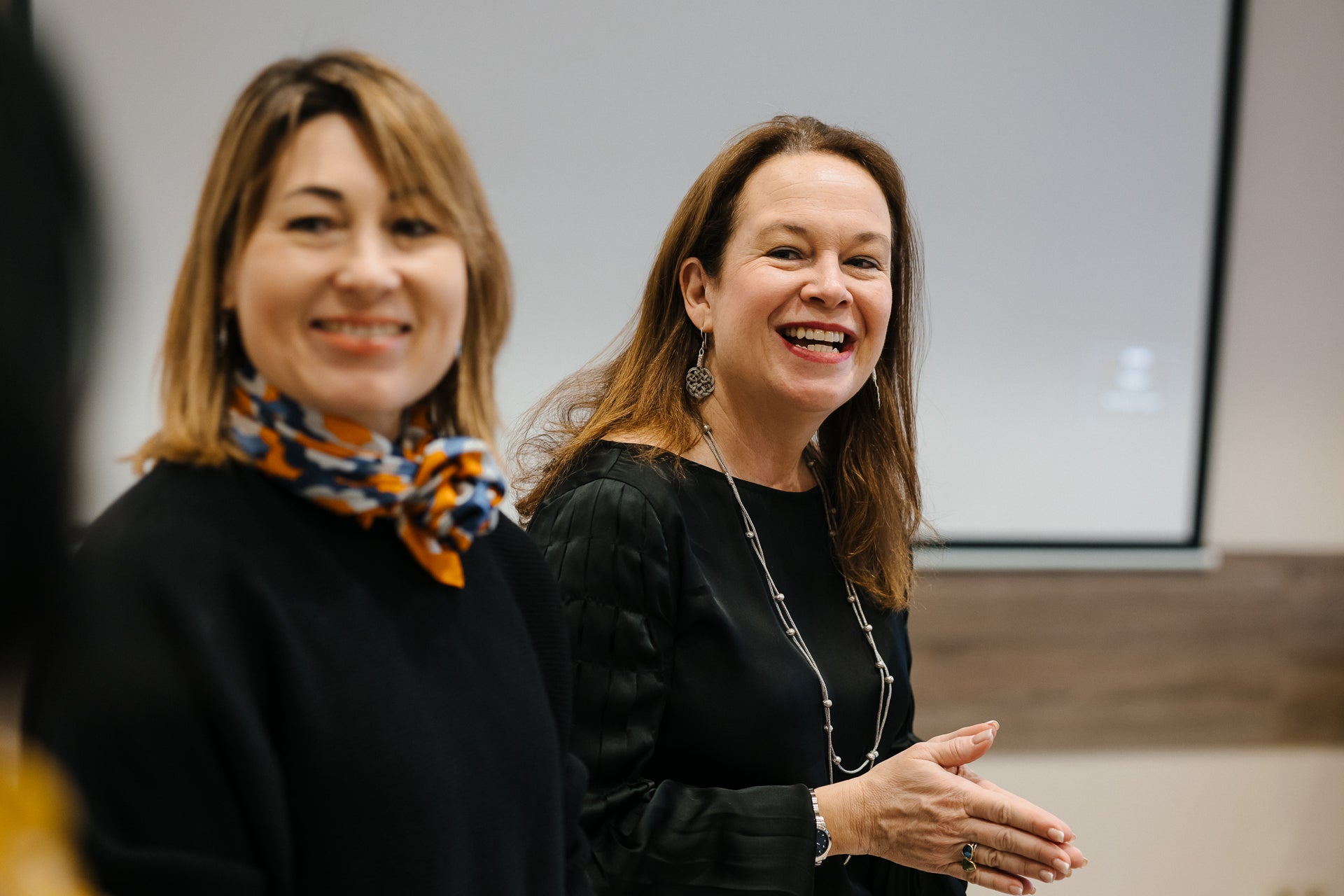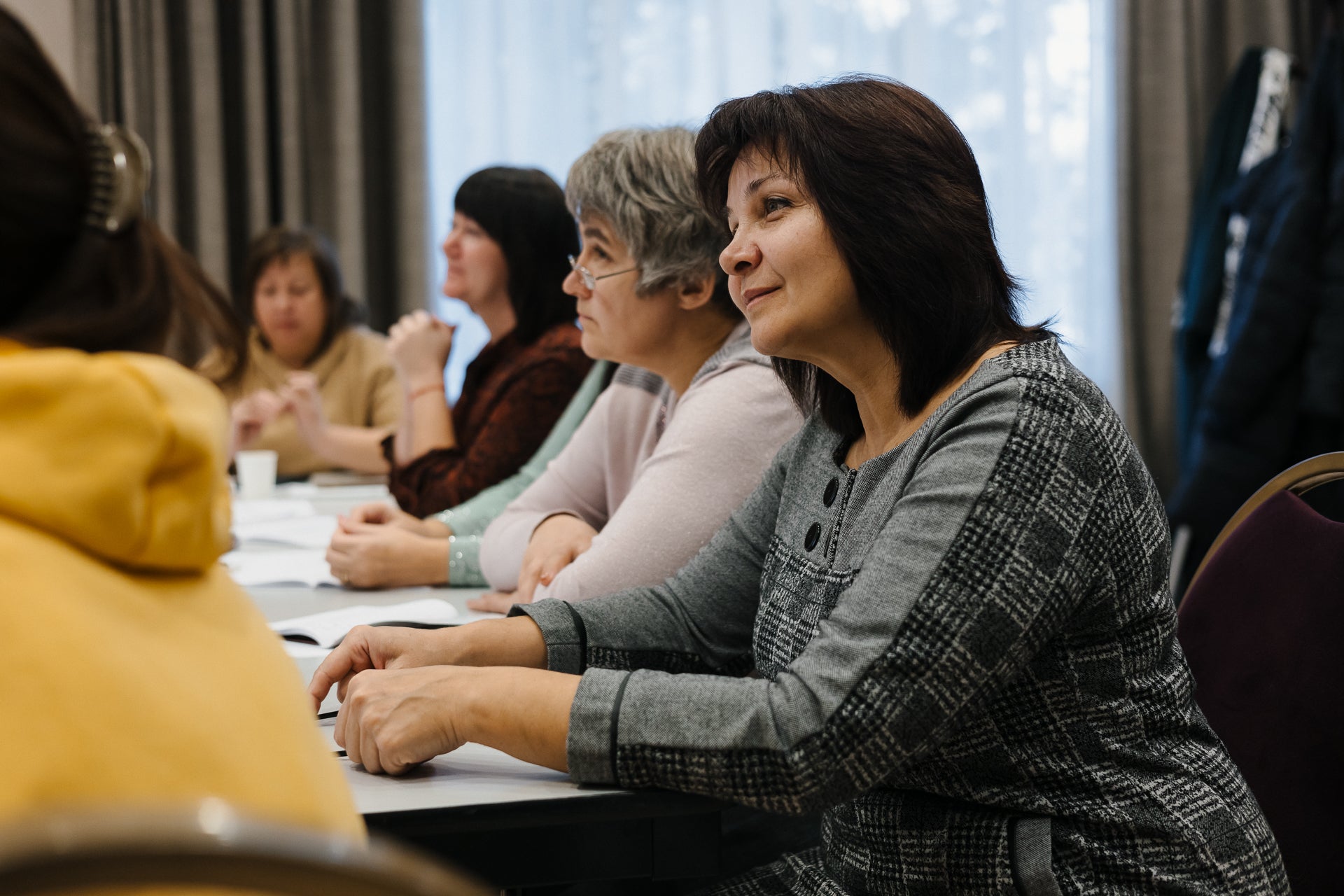Trainings on "The Role of Women's Mediation in the Implementation of the Women, Peace, and Security Agenda and Recovery Processes in Ukraine"
Date:
At the end of November, international trainer and expert on the localization of the Women, Peace, and Security (WPS) Agenda, Maia Avaliani, at the invitation of UN Women in Ukraine, conducted two trainings on "The Role of Women's Mediation in the Implementation of the Women, Peace, and Security Agenda and Recovery Processes in Ukraine" for representatives of regional and local authorities from Zaporizhzhia, Chernihiv, Sumy, and Kirovohrad regions.

Key departments responsible for localizing the WPS Agenda in respective regions and communities were represented by 42 female participants and 3 male participants from regional military administrations and 13 target communities of the project: Bilopilsk, Sadivsk, Lebedynsk, Romensk territorial communities of Sumy region; Ladanska, Varvinska, Osterska, and Ivanivska territorial communities of Chernihiv region; Pantaiska, Subottsivska, Dobrovelychkivska, and Maryanivska territorial communities of Kirovohrad region, and Mykhailo-Lukashivska territorial community of Zaporizhzhia region.
The training focused on the issues of "Women, Peace, Security" and mediation. Participants learned about the principles and processes of mediation, gender aspects of conflicts, and methods to ensure that women's voices are heard and their interests are represented in mediation. Much time was devoted to developing mediation skills, effective communication, and active listening in mediation; negotiation techniques and problem-solving; promoting dialogue and managing power dynamics. Participants learned to manage emotions and express empathy, sharing examples of mediation from their own experiences.

The training addressed issues such as addressing the root causes of conflict, and war, and the needs and rights of specific groups in mediation processes. An important part of the training was dedicated to expanding the political and social opportunities for women, women's leadership, participation in decision-making, and social inclusion during post-war recovery.
The trainer created a positive and open space that facilitated lively discussions of ideas and actions to expand women's opportunities and provide them better access to livelihoods, entrepreneurship, professional education, and finances in communities.

Key topics included:
- Accessibility of medical services and preservation of women's reproductive function.
- Establishment of women's organizations to support women and develop their leadership.
- Creation of information spaces to disseminate information about projects, opportunities, and education.
- Improvement of social services for vulnerable women in the community and population categories in difficult life circumstances.
- Establishment of women's support centers, provision of psychological services to victims of domestic violence.
- Development and funding of rehabilitation programs for offenders.
- Creation of gender-sensitive jobs in the context of territories.
- Analysis of women's skills and abilities in the community and training to realize their talents.
- Implementation of courses on economic and media literacy, targeted advertising on social media, and motivational meetings with successful businesswomen.
This training is enabled by the financial support from Norway.
